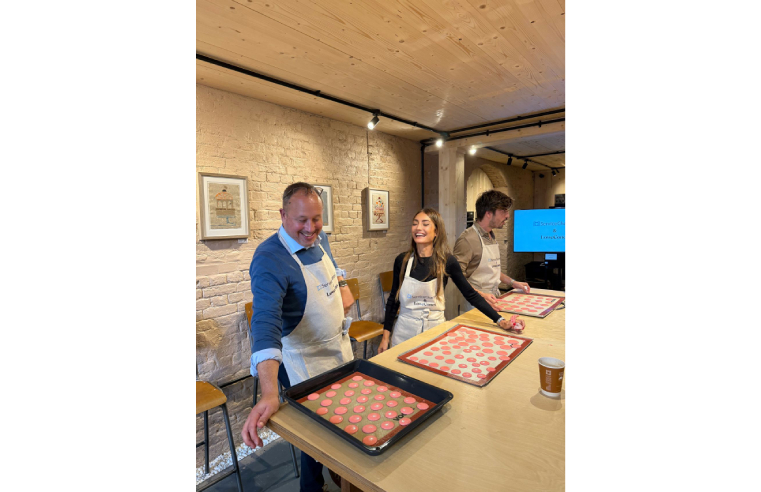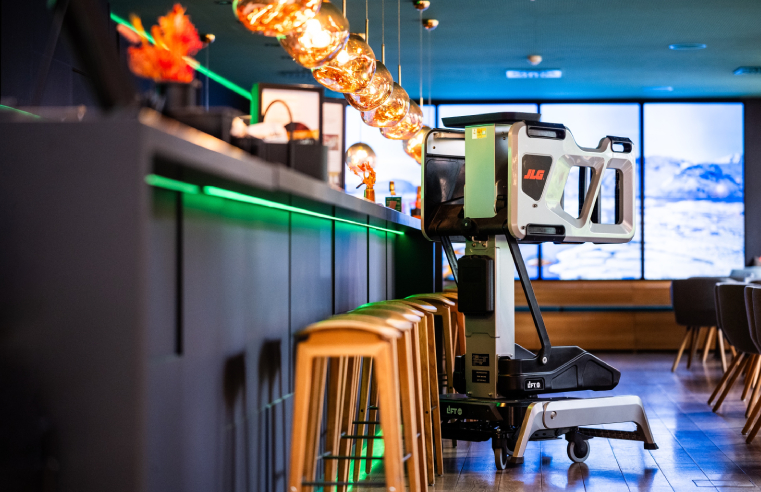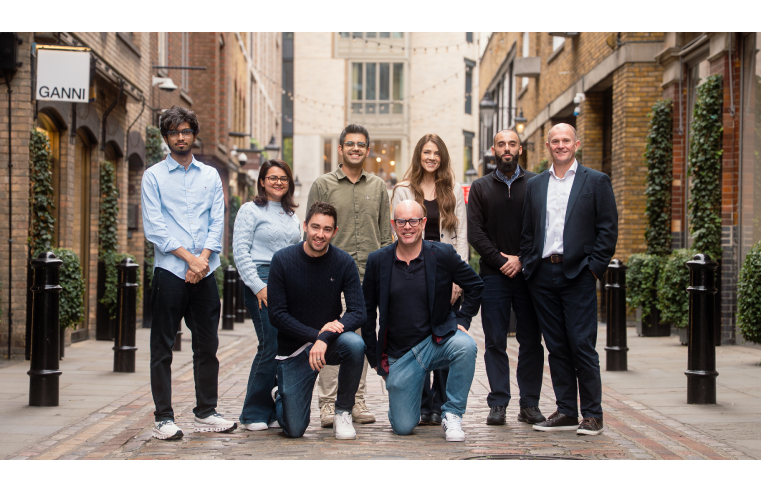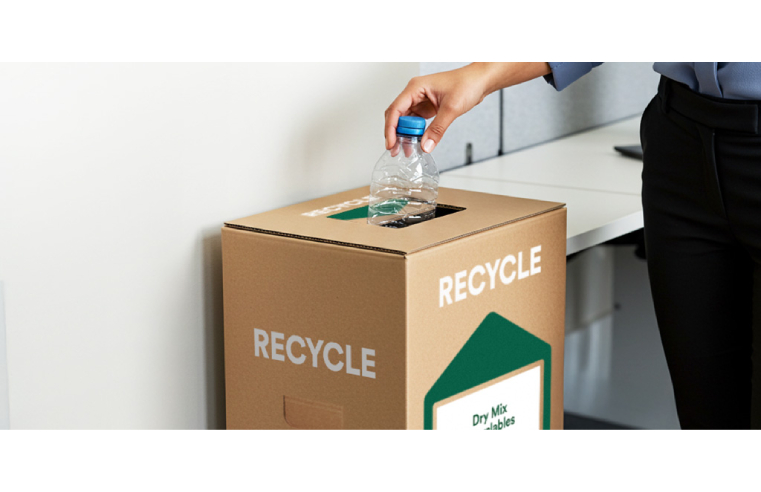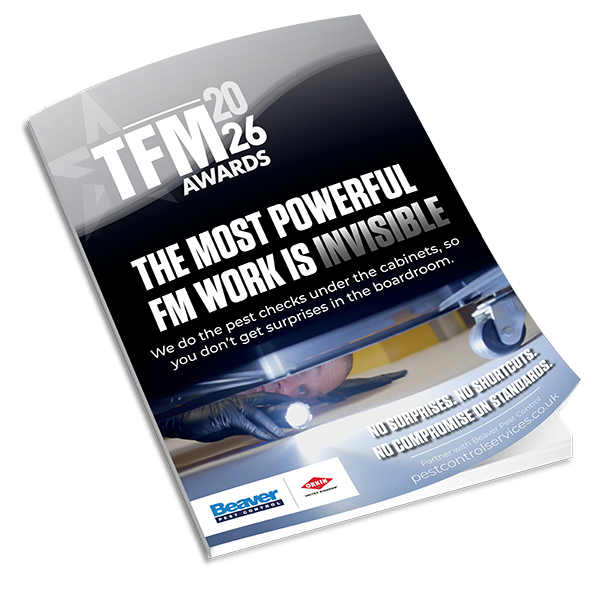An innovative little box that resembles a Rubik’s cube is making its way into corporate workspaces to assist FM and HR teams gauge energy consumption and monitor the building’s efficiency, as well as track air quality, temperature and overall comfort of their physical surroundings.
If individuals feel good in their workplace, they’re more likely to care about, and take care of, the buildings where they spend a large part of their days.
And to ensure that the sample is truly representative, each individual can have a lightweight and portable GreenMe Comfort Meter on their own desk.
What is it?
The complex electronic device, created by the French company GreenMe, is a plastic cube with small perforations on its surface to allow air to reach internal sensors that collect data about ten environmental factors.
Workplace discomfort has obvious and proven detrimental effects. Flickering lights can result in brain activity imbalance, resulting in disorientation, vertigo and nausea. An environment that’s too hot requires our hearts to work harder and causes heat fatigue; one that’s too cold causes stress disorders. Exposure to loud or shrill noises can lead to increased blood pressure. So, where did the idea to create a comfort meter come from?
Efficiency + Comfort = Benefit
GreenMe was founded in 2014 by engineers Aïda Berrada and Alexandre Dugarry, who are passionate about creating green, efficient buildings and making individuals understand the impact of their own behaviours in those spaces.
Berrada says it’s all good and well constructing an energy-efficient building, but if people don’t feel good in it, they won’t care about acting responsibility and won’t pay attention to their energy consumption. There’s an added benefit for the companies, too. Studies have shown that employee productivity increases 40% with better lighting and sick leave declines by 55% with better air quality.
The French-based company won an EDF (Électricité de France) start-up competition with a protoype of the GreenMe Comfort Meter - and landed the French utility company as their first client. Once it was clear there was a market for the device, the founders looked at how to scale up the operation. They contacted Lourdes-based AI2P (part of the Acaplast Group) about manufacturing the plastic cubes, which encase the electronics.
Designing the Cube
Co-founder Alexandre Dugarry explained: “We got to know Acaplast by researching local companies doing plastic injection. We designed a model and manufactured the first dozen using a 3D printer. We had met design companies who advised us to produce the parts in China. But we wanted to work locally.”
GreenMe worked with the team at AI2P/Acaplast to reduce the cube size, as it was important that the units could be portable and placed on desks close to individuals. While most buildings have sensors on ceilings or floors, the data is more relevant if it is close to where people are sitting.
Acaplast was asked to address the constraints of organizing the internal electronics in a small space, so the sensors wouldn’t corrupt one another. GreenMe wanted a device that was easy to mount, priced competitively and had attractive colours and design – creating an object that people would be happy to have on their desks. Which is how the design reminiscent of the Rubik’s cube was chosen.
How does it work?
The GreenMe Comfort Meter records a room’s ambient temperature, its noise levels, including frequencies that are unpleasant to the human ear, lighting levels, such as colour temperature and flickering frequencies, and air quality, including the level of VOCs (Volatile Organic Compounds), CO2 and particle matter present in the room.
In addition, employees can indicate their personal comfort level or raise alerts by tilting the meter on its side. If set down in one direction, a smiley face appears; if set in the opposite direction, an unhappy face appears. Or it can serve as a simple survey tool, by programming it to respond to ‘Yes’ or ‘No’ questions. For example: Do you like the new cafeteria menu? You tilt the meter to record your answer.
The information is sent to a data center located in France using public radio frequencies that connect to the LoRaWAN network, which is used for Internet of Things (IoT) applications. GreenMe provides clients with access to a dashboard they can use to evaluate the performance of their facilities. It also offers training and assistance in creating an action plan to optimize the building’s efficiency, reduce energy consumption and meet European norms for natural light and noise thresholds.
Where to next?
GreenMe, with its five employees, is based in France, but has a presence that reaches across Europe. You can find the GreenMe comfort meters in banks, insurance companies and offices across France, Switzerland, Luxembourg, Belgium, the Netherlands and the UK. The recent health crisis has brought air quality and comfort into focus outside the office, as well, with more clients asking if they can use the device at home.
Berrada says that it’s technologically possible to use the GreenMe Comfort Meter as a plug and play module. Perhaps a push into the home IOT market is next on the horizon for the little comfort cube?







